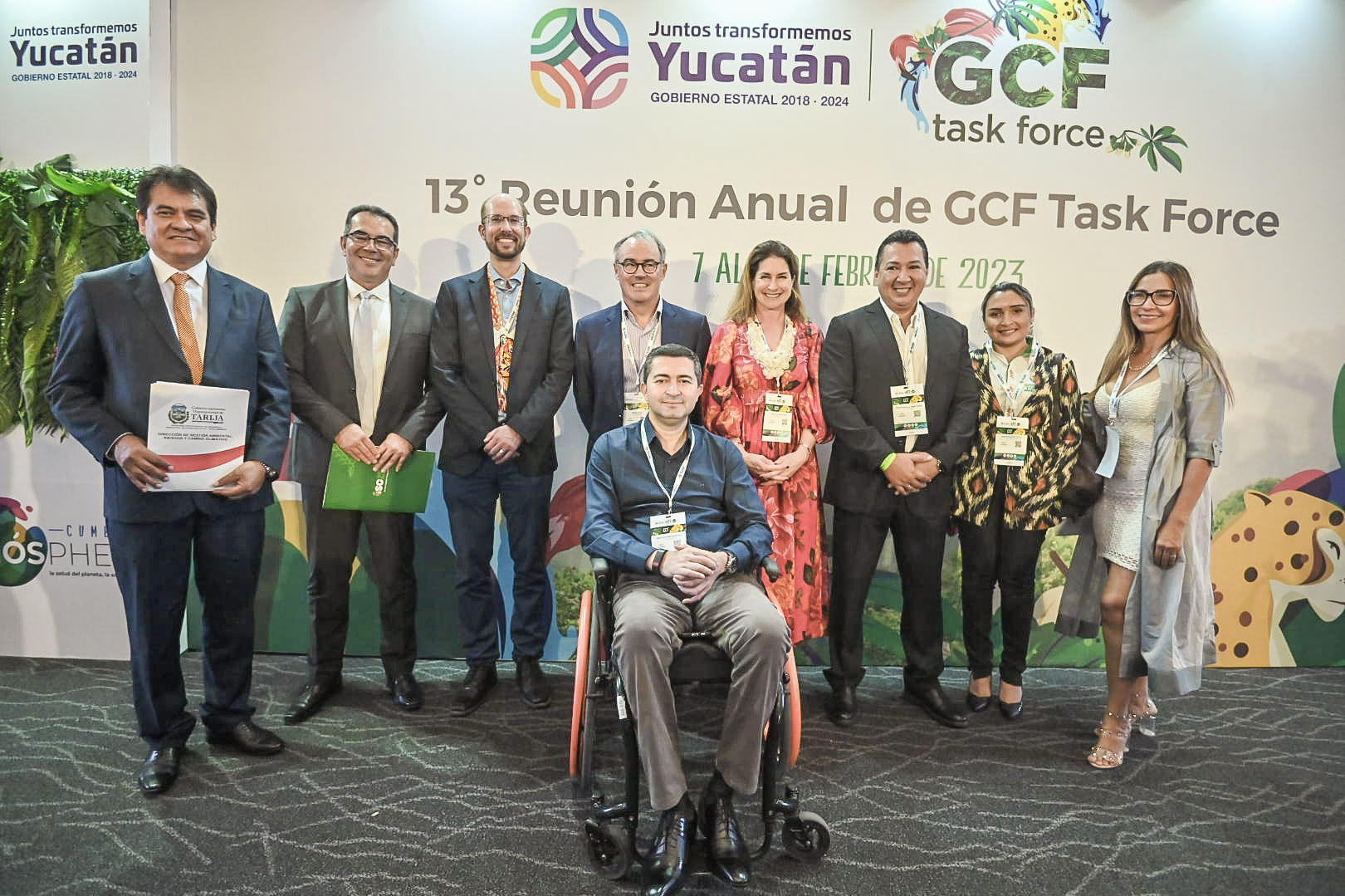As previously reported, three departments from Bolivia – Pando, Santa Cruz, and Tarija – were voted in as full members of the Task Force at our 13th Annual Meeting in Merida, Yucatan last week! Fundacion Natura Bolivia has been supporting each of these departments and posted the following press release on this important addition to our global network:
“During the annual meeting of the GCF, held in Yucatan, Mexico, the governments of Santa Cruz, Tarija and Pando received approval from the delegates to become full members of this working group that brings together [43] states and provinces with a common objective, to work on the protection of tropical forests, reducing emissions from deforestation and degradation, and promoting realistic pathways for sustainable rural development through direct partnerships with subnational governments, civil society, the private sector, indigenous peoples and local communities.
The GCF was born in 2008 when 10 governors from Brazil, Indonesia and the United States decided to jointly address a common problem, global climate change. Under the premises that subnational governments are key in the fight against climate change, that jurisdictional approaches help to scale the impact of climate policies and practices, and that governments are stronger together, this working, learning and joint support group grew year by year, adding states and provinces from Brazil, Colombia, Ecuador, Indonesia, Ivory Coast, Mexico, Nigeria, Peru, Spain and the United States, and now Bolivia.
This network promotes that state and provincial leaders, from governors to key agency secretaries and technical officials are engaged in the fight against climate change and that, together with important civil society and private sector partnerships, subnational government leaders are well positioned to have a scalable impact on our most pressing climate issues.
In this way the GCF works under the approaches of:
- Mobilize funding and funds directly to states and provinces.
- Engage indigenous peoples and local communities through partnerships and collaboration.
- Addressing deforestation caused by commodity production.
Seeking Bolivia’s participation and inclusion in the GCF
The Paris agreement recognizes that subnational governments are now considered critical actors in the implementation of a large part of the international climate policy agenda. In this regard, for the past 5 years, Fundación Natura Bolivia has been promoting and facilitating the participation of Bolivian governments with important tropical forests, such as Santa Cruz, Tarija and Pando.
In 2018, the Autonomous Departmental Government of Tarija, with the technical advice of Fundación Natura Bolivia, began the process to become part of the GCF. That year 2 representatives of the Tarija government attended the annual meeting held in San Francisco, USA, receiving the approval of the working group to be an observer member.
In 2019, Tarija participated again in the annual meeting of the GCF Task Force held in the city of Florencia, Caquetá, Colombia, with the participation of the then Governor of Tarija, Adrian Oliva, ratifying its interest in becoming full and active members of this network.
One of the requirements for active GCF membership is participation in annual meetings as listeners. Tarija was already in the final stage to become a member of the GCF, however, the COVID-19 health emergency delayed its final membership.
In addition to Tarija, Bolivia has important tropical forests in Santa Cruz and Pando, that is why since 2020 Fundación Natura Bolivia worked promoting and advising these 2 departments so that they can participate and join this important working group, including the Autonomous Indigenous Guarani Government of Charagua Iyambae that manages 7 million hectares of which 68% are declared as protected areas.
In 2022, delegates from the Governorate of Santa Cruz and the Indigenous Government of Charagua Iyambae attended the annual meeting of the GCF held in Manaus, Brazil. At this meeting Santa Cruz and Pando were unanimously accepted as observers.
Later that year, in October, the region of San Martin, Peru was the venue for an exchange of experiences aimed at intensifying dialogue, expanding subnational cooperation and allowing for the articulation and reflection on alternatives and means of implementation for low-emission development.
Fundación Natura Bolivia, under the commitment to ensure that three subnational governments belong to the GCF (Santa Cruz, Pando and Tarija) and to incorporate Charagua Iyambae as an indigenous territory, managed the participation of these territories.
Finally, after fulfilling all the requirements and steps for the GCF membership process, and with the recommendation of 2 members of the group (governorships of Mato Grosso and Acre), Santa Cruz, Tarija and Pando were accepted as full members at the 2023 annual meeting in Yucatan.
For Bolivia, this is a very important achievement, which empowers and strengthens subnational authorities in the country’s climate agenda by being part of this network of actors involved in the construction of state and provincial programs for low-emission development.
The GCF Working Group plays a vital role in the broader international effort to protect forests, reduce emissions and improve livelihoods.”
En Español (original): Bolivia ingresa al Grupo de Trabajo de Gobernadores por el Clima y Bosques para trabajar en la protección de los bosques tropicales – Fundación Natura Bolivia

